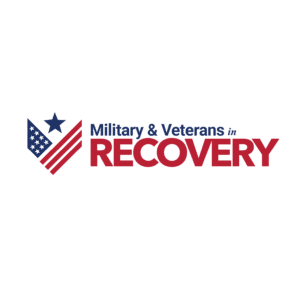Eating Disorders
Understanding Eating Disorders
Eating disorders include many illnesses marked by an unhealthy relationship with food. People struggling with an eating disorder might restrict what and how often they eat. Others are unable to control how much they eat.
As many as 24 million Americans struggle with a form of eating disorder.
Eating disorders are extremely dangerous and can prove fatal when left untreated. This group has a higher mortality rate than that of any other mental health condition. American women are most likely to suffer from an eating disorder, although American men also suffer from them.
Try Online Therapy

Get professional help from an addiction and mental health counselor from BetterHelp by phone, video, or live-chat.
Take the Quiz. Get Matched. Begin Therapy.

Online therapy can help you with long term addiction support. Connect with a therapist from Talkspace anytime, anywhere.
Get matched with a therapist now.
Paid Advertising. We may receive advertising fees if you follow links to promoted online therapy websites.
Most eating disorders arise during the teen and young adult years and include:
-
Anorexia Nervosa
Eating far less food than what’s healthy. Someone suffering from anorexia nervosa will have an unrealistic body image, feeling they are heavier than they actually are. He or she might also binge and purge, or eat and then vomit immediately. Some people with anorexia burn unhealthy amounts of calories by excessively exercising after eating.
-
Bulimia Nervosa
Eating huge amounts of food and purging without being able to stop. Those struggling with bulimia often maintain what’s considered a healthy weight but feel ashamed of their binging and their bodies. Many bulimia sufferers will refuse to eat in public or around people.
-
Binge Eating Disorder
Repeatedly eating more food than other people would or more food than necessary during a brief period. Episodes occur at least once a week over 3 months or more.
Many eating disorder sufferers fall into another category called Otherwise Specified Feeding and Eating Disorders (OSFED).
Featured Centers Offering Eating Disorder Treatment


Impact Of Eating Disorders
Depriving the body of nutrients, eating excessive amounts of food and purging all cause serious harm to the mind and body. Anorexia nervosa leads to extreme thinness; brittle hair, nails, and bones; yellowed, dried skin; losing muscle mass, and slowed pulse. At its most advanced stages, anorexia can cause multi-organ failure and brain damage.
Bulimia nervosa deprives the body of fluids and weakens tooth enamel via purging. It also causes gastrointestinal problems and acid reflux disease over time. Imbalances of calcium, sodium, and other minerals in the body can lead to heart attack.
Other outward symptoms of an eating disorder might include:
- Listlessness
- Dizziness
- Stomach pain
- Anxiety
- Constipation
- Loss of teeth
- Mood swings
- Depression
- Loss of hair
Eating Disorders And Popular Culture
Society’s obsession with an “ideal” body type and dieting contribute to a complex, damaging culture surrounding food and eating. The misconception that “looking thin” will directly lead to professional and personal success is especially harmful. Studies show that 35% of “normal dieters” will slide into pathological dieting or unsafe self-starving. This increases the risk of developing a severe eating disorder.
Young women are especially vulnerable to distorted expectations of beauty. Almost 47% of girls enrolled in 5th through 12th grade reported a desire to lose weight as a result of popular magazines’ depictions of the “ideal” female body.
Female athletes have a higher risk for developing an eating disorder than the general female population.
Men often wrestle with their own eating disorder stigmas. Many men struggling with an eating disorder will not seek treatment due to widespread perceptions that eating disorders are a “woman’s disease.” As a result, researchers fear eating disorders among men often go unreported and untreated.
Looking for a place to start?
Join the thousands of people that have called a treatment provider for rehab information.
Free and confidential
Available 24/7
Access to professional treatment
Male Eating Disorders
Although eating disorders disproportionately affect women, especially young women, they are increasingly common among men. In particular, body dysmorphia in men who workout is on the increase. “Bigorexia” or “musclerexic” are slang terms for men who are abusing Anabolic Steroids in large amounts to pack on size because they feel that they are never muscular/big enough. There is even some evidence that men using steroids tend to be abusing other substances.
Signs Of An Eating Disorder
It can be hard to recognize an eating disorder due to prevalent social pressure to have a “thin” physique. Someone can look relatively healthy or have a healthy-looking body weight but still be acting in a way that’s damaging.
Mary-Kate Olson, Portia de Rossi, and Felicity Huffman are 3 of many successful celebrities to speak about their ‘double lives’ battling eating disorders.
Eating disorder sufferers might isolate themselves from friends and loved ones because they are ashamed. Many can hide their conditions until their bodies have deteriorated to a dangerous point.
Some signs of an eating disorder to look for include:
- Refusal to eat certain foods
- Constantly complaining about being “fat”
- Extremely low body weight
- Misusing laxatives and other diuretics
- Obsessive “calorie counting”
- Skipping meals or avoiding eating around others
- Intense fear of gaining weight
- Denying having a problem with food
Those suffering from an eating disorder are also more likely than the general population to develop a substance use disorder (SUD). Nearly 50% of eating disorder sufferers meet criteria in the Diagnostic Statistical Manual of Mental Disorders (DSM) outlining addiction. A substance use disorder coupled with an eating disorder can lead to death.
Common Questions About Rehab
Treatment For An Eating Disorder
Only 1 in 10 people suffering from an eating disorder ever receive treatment. Of that small population, only 35% receive treatment at a specialized facility. Professional care and support can help these people avoid tragedy.
The exact methods for treating eating disorders should be tailored to specific needs and health concerns.
Eating disorders can become chronic conditions requiring long-term treatment — there often isn’t an immediate “fix” for conditions like anorexia and bulimia nervosa. In dire cases, eating disorder sufferers might require hospitalization and monitoring to help their bodies recover.
Psychological counseling and psychotherapy offer the necessary tools for mental and emotional healing. The National Eating Disorder Association (NEDA) also hosts and sponsors events across the country to emotionally support eating disorder sufferers and their loved ones through recovery.
Check if my insurance covers rehab
Addiction Center is not affiliated with any insurance.
Eating disorders of all kinds are challenging to overcome, but with the proper treatment, you can make a turn toward recovery and health. If you are interested in learning about your online therapy options for eating disorders, click here.
Try Online Therapy

Get professional help from an addiction and mental health counselor from BetterHelp by phone, video, or live-chat.
Take the Quiz. Get Matched. Begin Therapy.

Online therapy can help you with long term addiction support. Connect with a therapist from Talkspace anytime, anywhere.
Get matched with a therapist now.

Begin making positive changes with Online-Therapy.com. Quality online therapy, from the comfort of home.
Answer a few questions to get started.
Paid Advertising. We may receive advertising fees if you follow links to promoted online therapy websites.
Published:
Author
Jeffrey Juergens

-
Jeffrey Juergens earned his Bachelor’s and Juris Doctor from the University of Florida. Jeffrey’s desire to help others led him to focus on economic and social development and policy making. After graduation, he decided to pursue his passion of writing and editing. Jeffrey’s mission is to educate and inform the public on addiction issues and help those in need of treatment find the best option for them.
- More from Jeffrey Juergens
Reviewed by Certified Addiction Professional:
David Hampton

A survivor of addiction himself, David Hampton is a Certified Professional Recovery Coach (CPRC) and a member of the National Association of Alcohol and Drug Abuse Counselors (NAADAC).
- More from David Hampton
Sources


Recovery Starts Today
Call Now For Addiction Support

Newport Institute for Young Adults
Monticello , MN

Newport Academy – Teen Treatment Center
Saint Cloud , MN

Banyan Treatment Centers – Chicago
Chicago , IL

Timberline Knolls Treatment Center for Women
Lemont , IL

Banyan Treatment Centers – Illinois
Gilman , IL


Military & Veterans in Recovery – Banyan Treatment
,

Boca Recovery Center – Indiana
Bloomington , IN


Newport Academy – Teen Treatment Center
Dallas , TX

Symetria Recovery – Fort Worth
Fort Worth , TX

Newport Academy – Teen Rehab Center
Atlanta , GA


Recovery Unplugged – Austin Rehab Center
Riviera Beach , TX


Recovery Unplugged – Austin Detox
Austin , TX